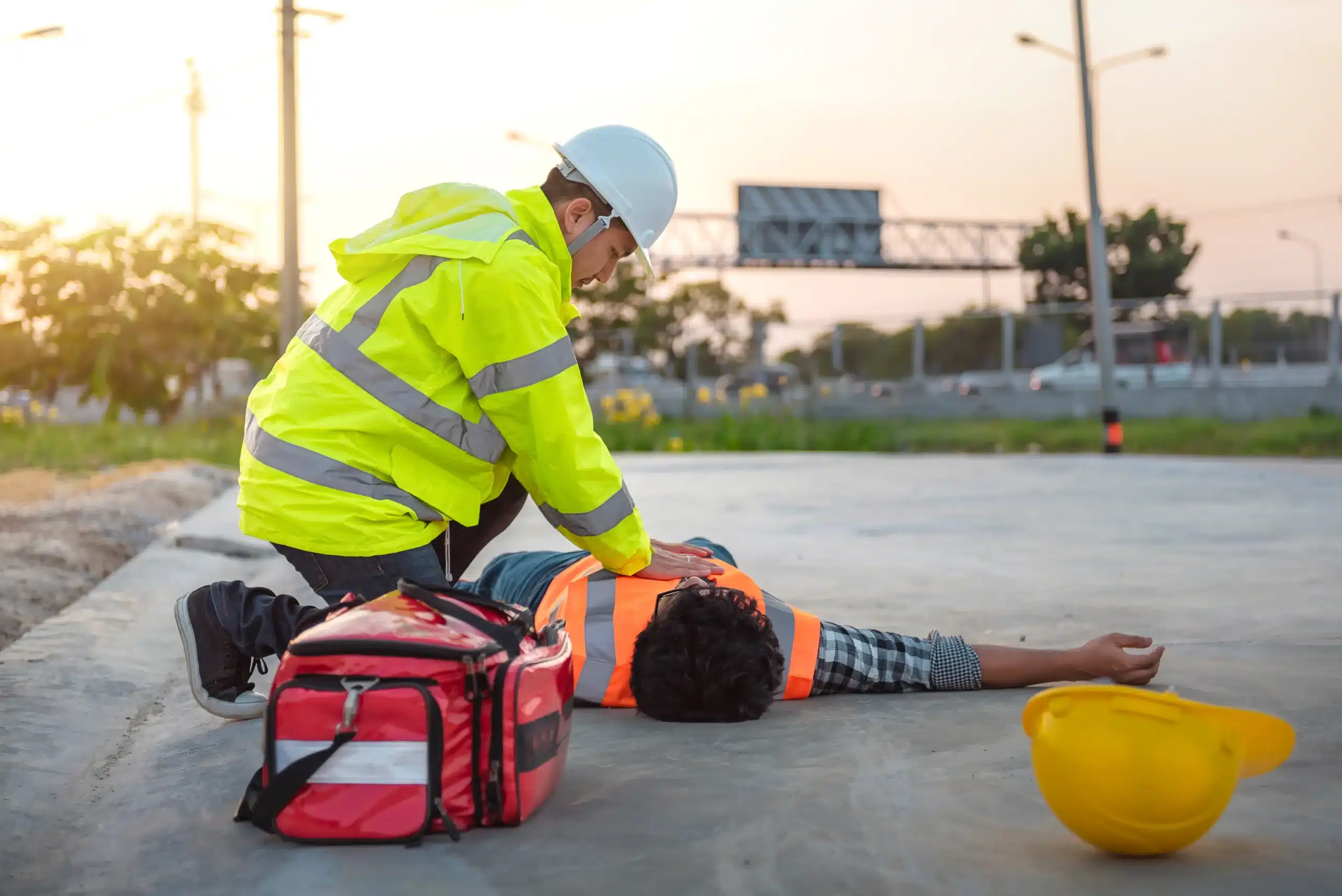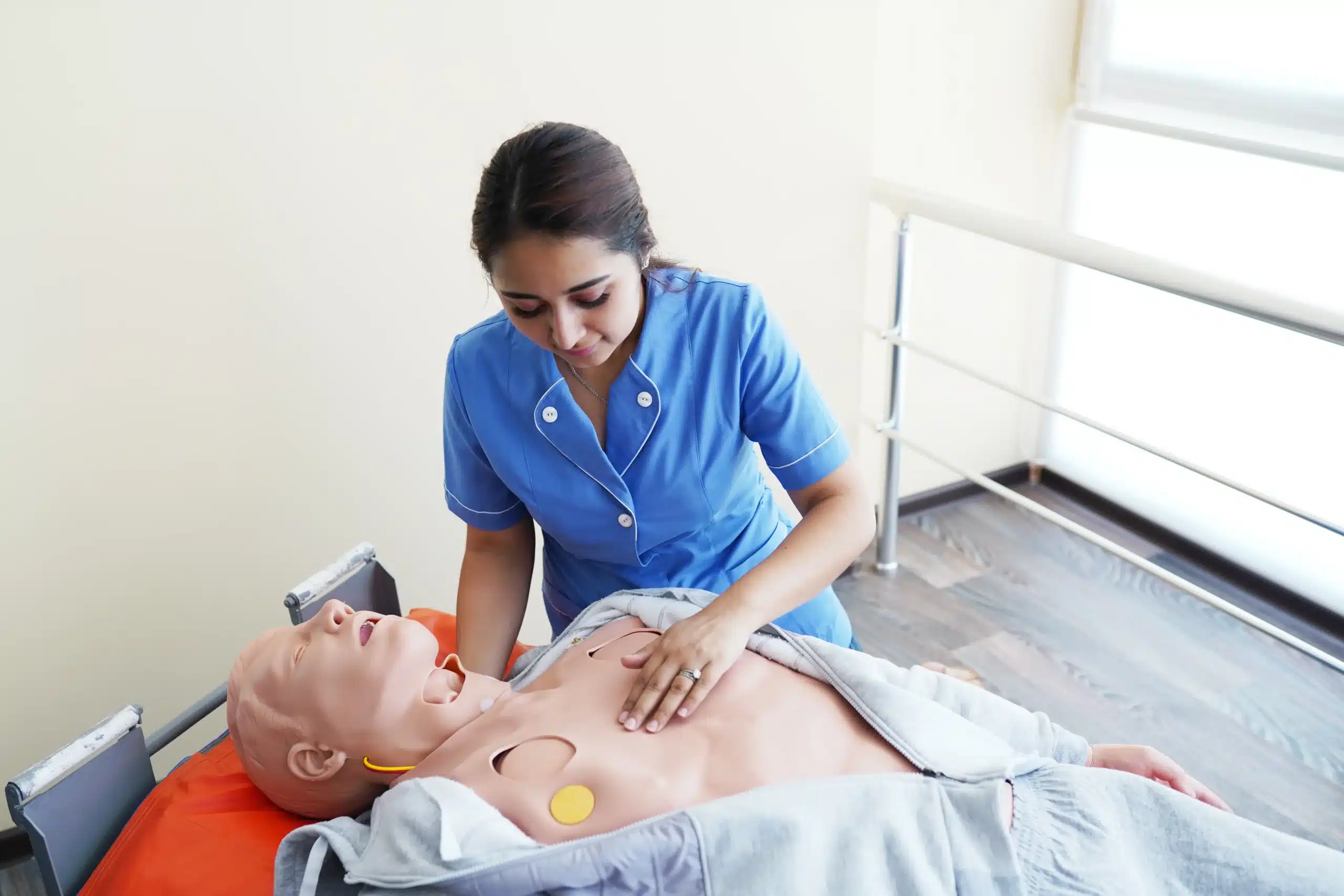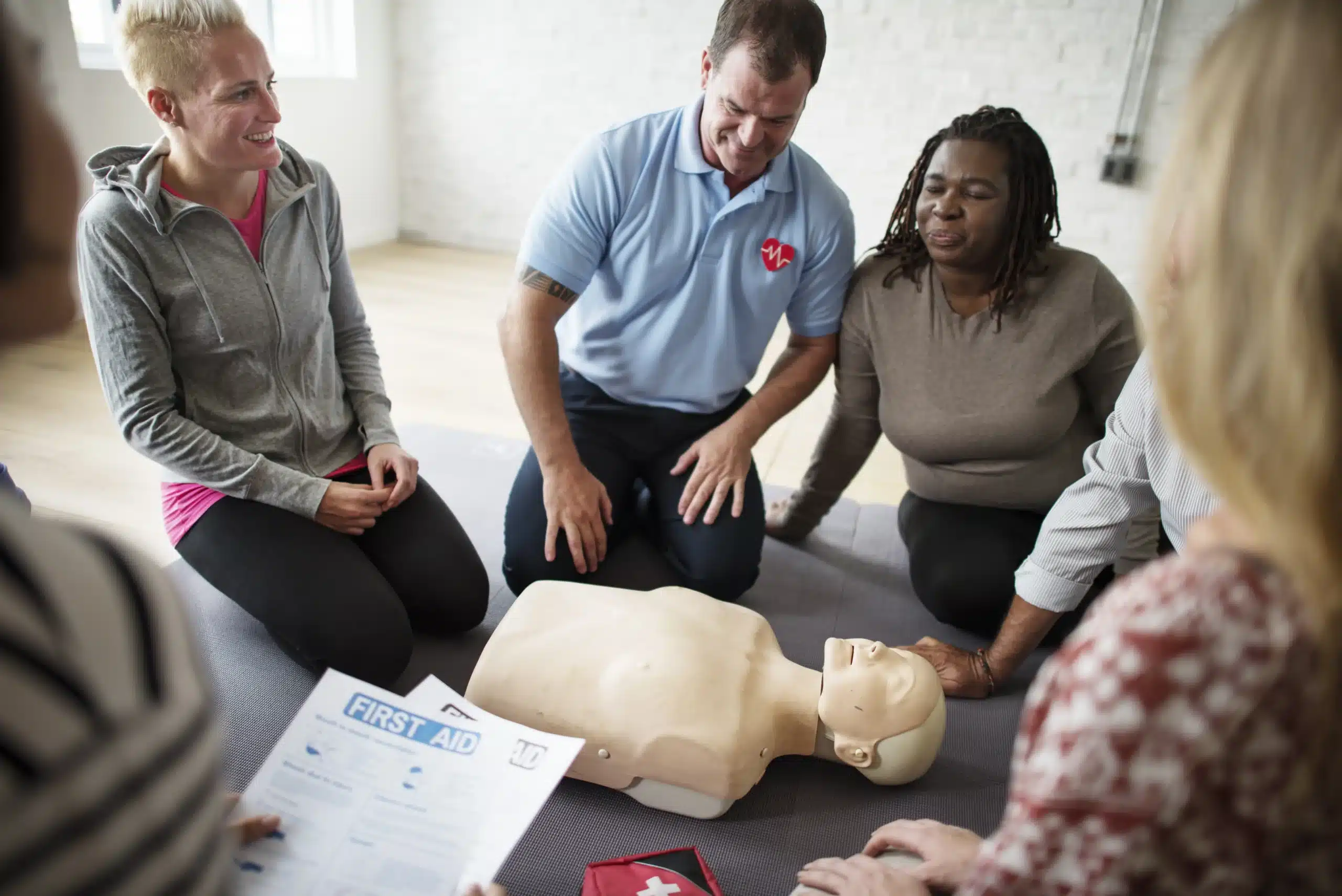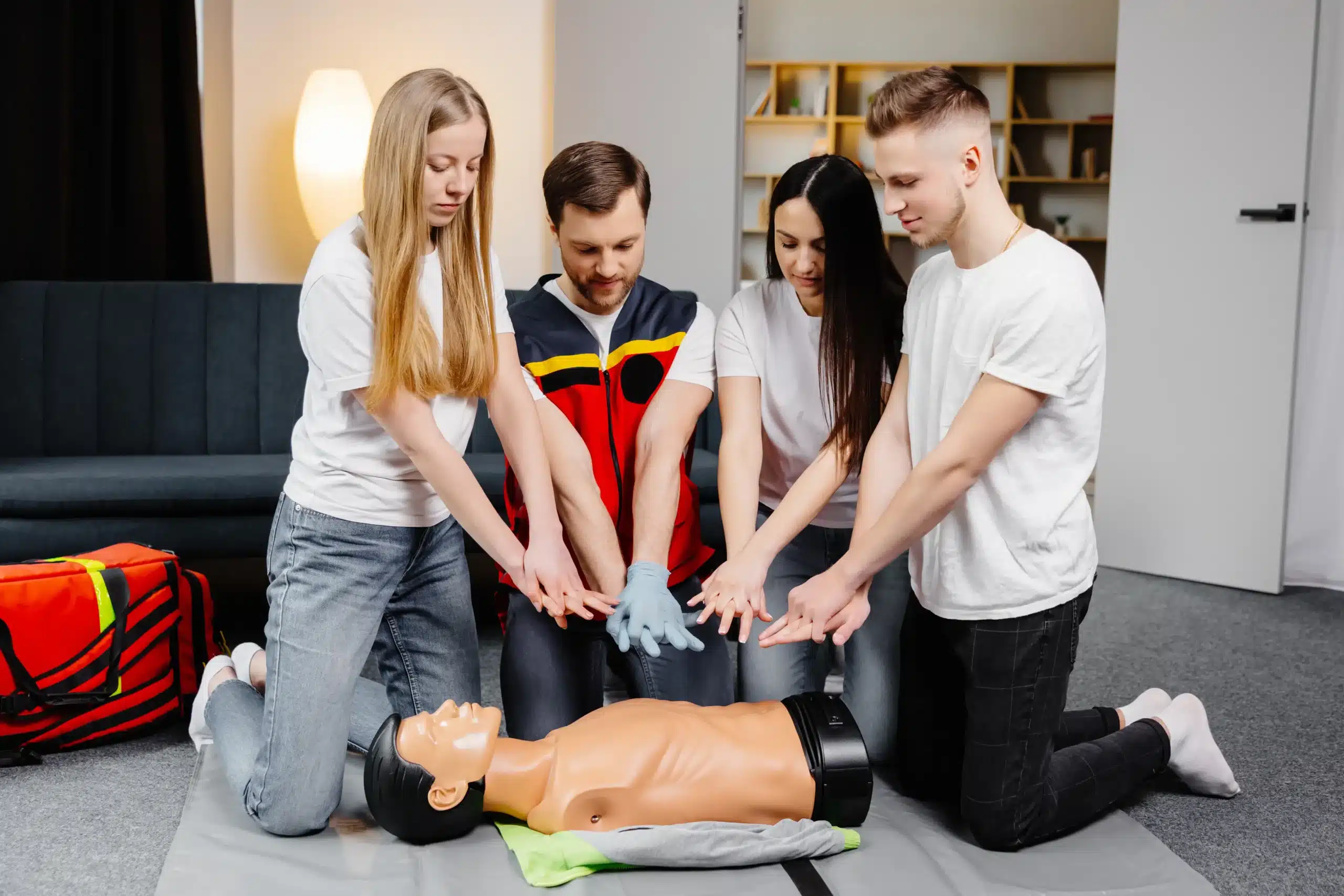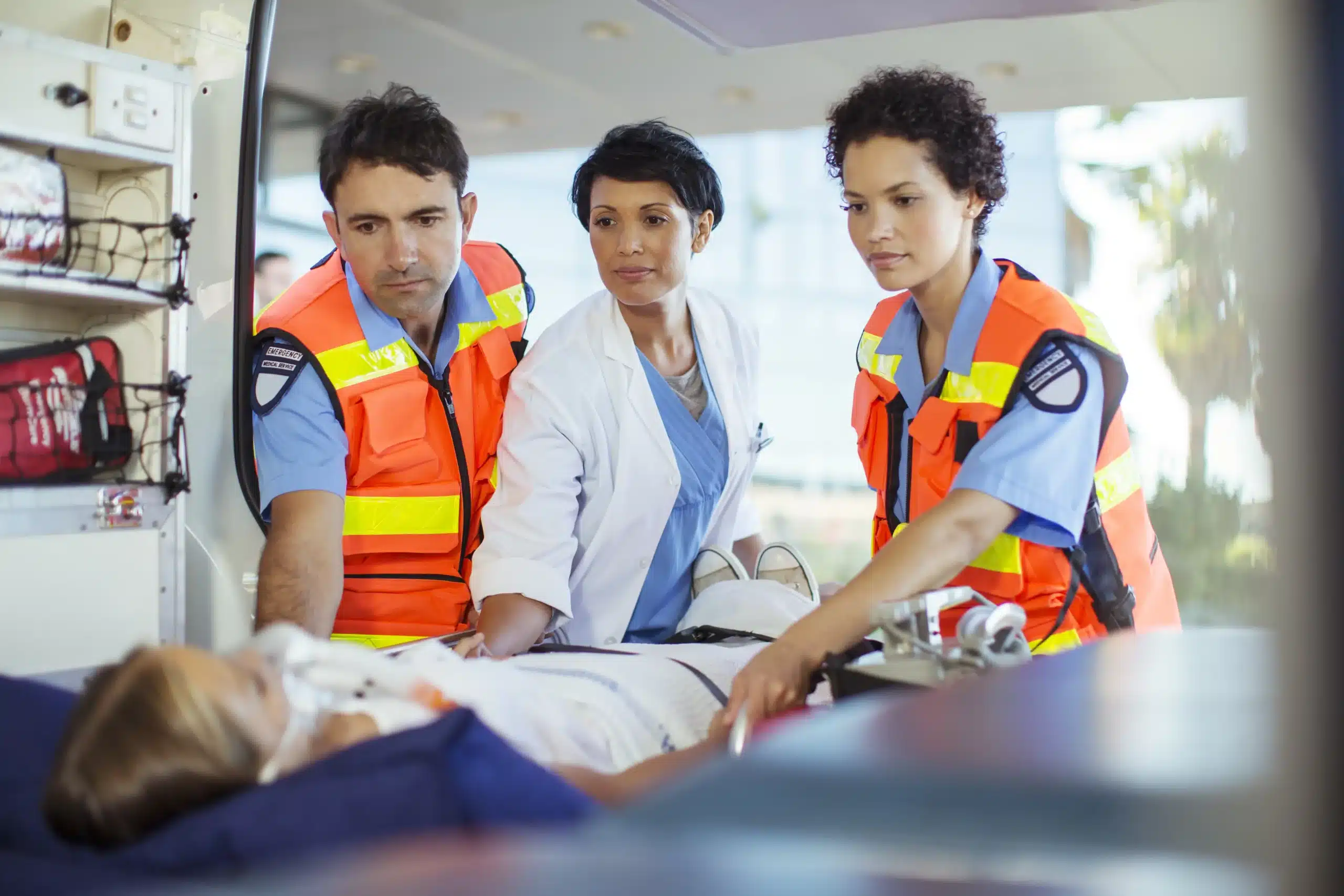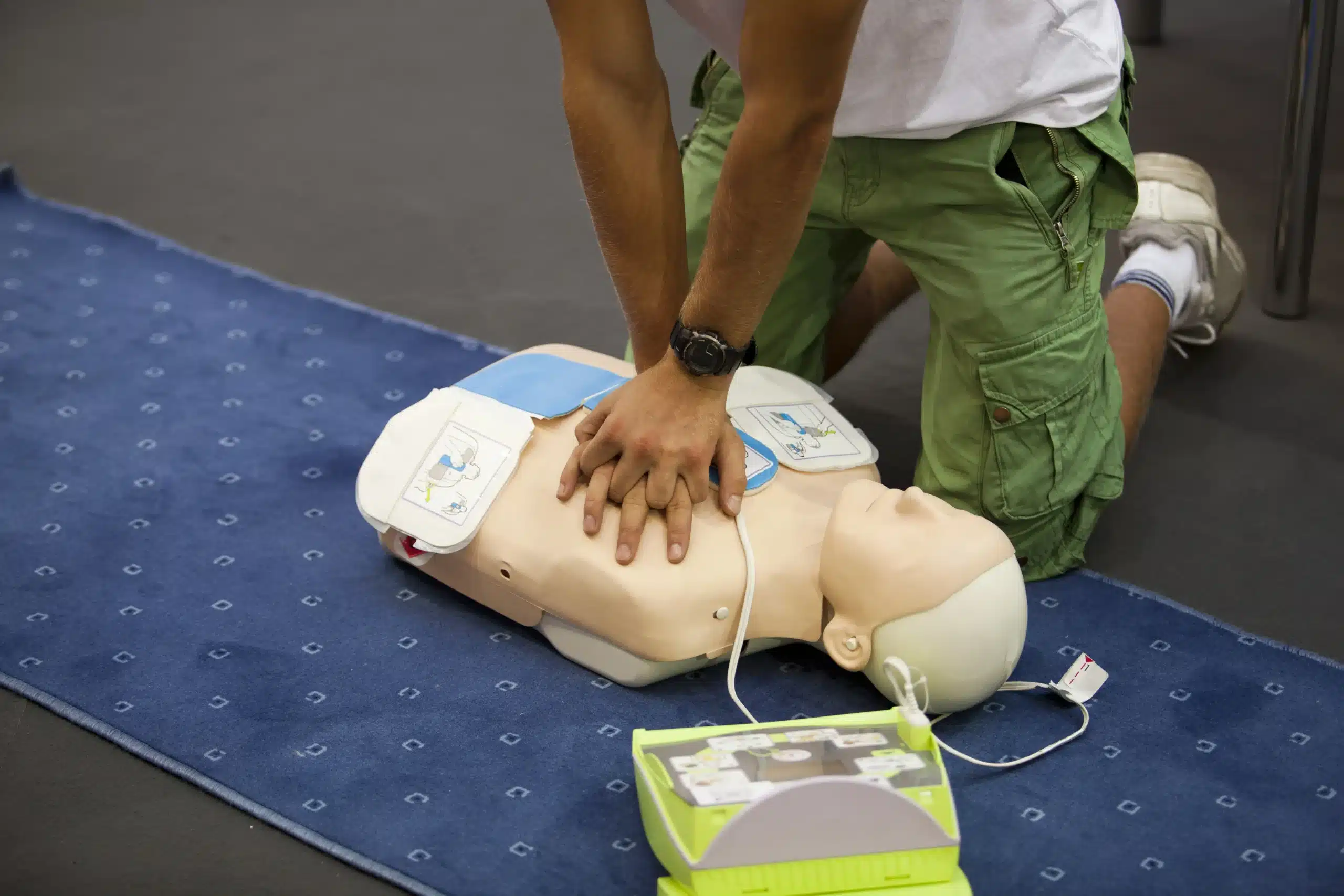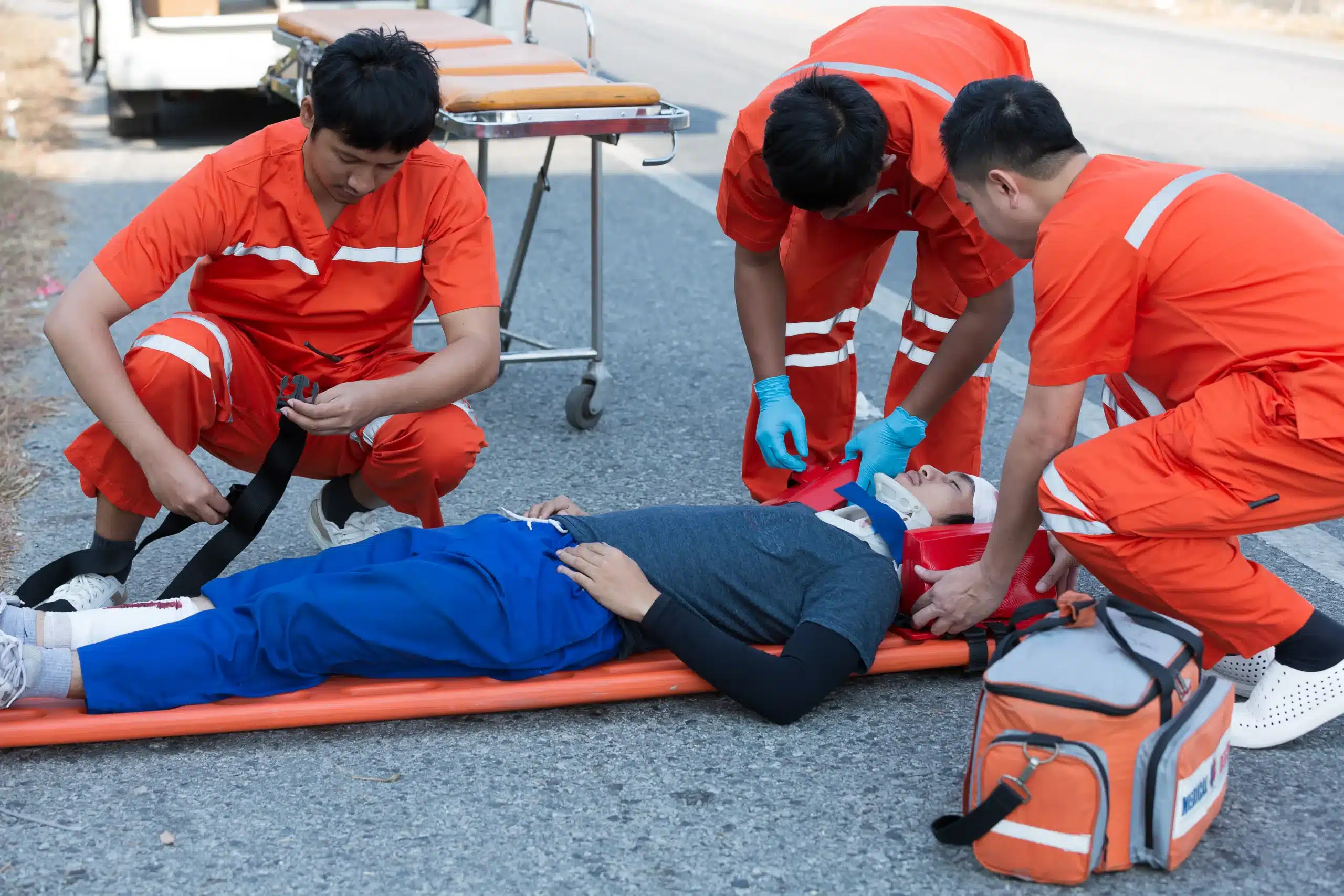Emergencies can happen anytime, anywhere. Would you know what to do? CPR certification equips you with the skills to respond effectively in critical situations, providing immediate care until professional help arrives. This comprehensive guide explores the various CPR course options available, including BLS, ACLS, PALS, and First Aid. We’ll delve into the differences between online and in-person training, discuss the importance of choosing an accredited provider with qualified instructors, and help you find CPR courses near me. Whether you’re a healthcare professional, a childcare provider, or simply want to be prepared, this guide will help you find the perfect CPR course to meet your needs and budget.
Key Takeaways
- Find the right CPR course for your needs. From basic CPR/AED training to advanced certifications like BLS, ACLS, and PALS, choosing the right course level and format (online, in-person, or blended) is the first step.
- Choose a reputable CPR training provider. Look for accreditation (like AHA), experienced instructors, comprehensive course content, and positive student reviews to ensure you receive high-quality training and a recognized certification.
- CPR training is an affordable and valuable skill. Course costs vary, so compare providers and consider group discounts or special offers. Remember that certification renewal is required, so factor that into your budget.
What are My CPR Course Options?
Finding the right CPR course can feel overwhelming with so many options available. This section breaks down the different types of CPR courses, training formats, and specialized certifications to help you make an informed decision. Whether you’re a healthcare professional, a childcare provider, or simply someone who wants to be prepared for emergencies, there’s a CPR course out there for you. Dublin CPR Classes serves the Dublin, Livermore, and San Ramon areas, so you can find convenient, local training.
CPR Course Types
CPR courses are designed to meet the needs of various individuals and professions. Basic Life Support (BLS certification) is a comprehensive course covering CPR, AED use, and relief of choking for adults, children, and infants. It’s suitable for healthcare providers and anyone seeking a higher level of training. First Aid courses teach essential skills to manage injuries and medical emergencies until professional help arrives. These courses often complement CPR training, providing a well-rounded skill set for responding to various emergencies. Dublin CPR Classes offers a range of certifications, including BLS, ACLS, PALS, and First Aid.
Online vs. In-Person CPR Training
CPR training is offered in several formats to fit your schedule and learning style. Online courses provide flexibility, allowing you to learn at your own pace from anywhere with an internet connection. These courses typically cover the theoretical aspects of CPR and often incorporate videos and interactive simulations. RQI courses are a great option for busy professionals seeking convenient online certification. In-person training offers hands-on practice with certified instructors, allowing you to develop and refine your skills in a controlled environment. Many CPR certification courses offer blended learning, combining online modules with in-person skills sessions. This hybrid approach provides the convenience of online learning with the practical experience of hands-on training. Consider your learning preferences and schedule when choosing between online, in-person, or blended CPR training. Group discounts are available for in-person training, making it a cost-effective option for families, businesses, or community groups.
Specialized CPR Courses
Beyond basic CPR and First Aid, specialized courses cater to specific professional needs. Advanced Cardiovascular Life Support (ACLS) is designed for healthcare providers who manage cardiovascular emergencies, such as heart attacks and strokes. Pediatric Advanced Life Support (PALS) focuses on the specialized care of infants and children in emergency situations. These advanced courses build upon the foundational knowledge of BLS, providing healthcare professionals with the skills to handle complex medical emergencies. If you’re a healthcare provider, check with your employer or licensing body to determine the required certifications for your role. CPR/AED certification is a good option for those outside of healthcare who want to be prepared for emergencies. Dublin CPR Classes offers a low price guarantee, ensuring you receive high-quality training at a competitive price.
How Do I Choose a CPR Training Provider?
Finding the right CPR training provider is crucial for receiving high-quality instruction and a recognized certification. Here’s what to consider:
Accreditation and Certification
First, confirm the training provider is accredited by a nationally recognized organization like the American Heart Association (AHA). Dublin CPR Classes, for example, offers a range of AHA-certified courses, ensuring your training meets industry standards and is widely accepted. This accreditation is essential for healthcare professionals, childcare providers, and anyone requiring CPR certification for their job. AHA certification also holds weight with employers and licensing boards.
Instructor Qualifications
Look for instructors with extensive experience and up-to-date certifications. Experienced instructors can provide practical insights and create a more engaging learning environment. Check if the instructors are certified by the same organization accrediting the course. For instance, an AHA-certified course should ideally be taught by an AHA-certified instructor. This ensures they’re knowledgeable about the latest guidelines and techniques. Dublin CPR Classes prioritizes experienced and certified instructors.
Course Content and Duration
Different CPR courses cater to various needs and professions. Basic CPR training might suffice for general knowledge, while healthcare providers often require more advanced training like BLS or ACLS. Review the course syllabus to ensure it covers the skills and knowledge relevant to your situation. Also, consider the course duration and format. Some providers offer blended learning options combining online modules with in-person skills sessions, providing flexibility for busy schedules. Dublin CPR Classes offers various course formats to suit different learning styles and time constraints. You can find information on course content and duration on their website.
Reviews and Testimonials
Reading reviews and testimonials from past students offers valuable insights into a training provider’s quality and effectiveness. Look for feedback on the instructors’ teaching style, the course content, and the overall learning experience. Positive reviews can give you confidence in your choice and help you find a provider that meets your expectations. You can often find reviews on the provider’s website or on third-party review platforms. Consider checking with local community groups or professional organizations for recommendations as well. For those considering Dublin CPR Classes, you can explore their low price guarantee and other benefits.
How Much Does CPR Certification Cost?
CPR certification is an investment in your skills and ability to respond to emergencies. Naturally, you’ll want to find a course that fits your budget. Let’s break down the factors that influence CPR course costs.
CPR Course Pricing
CPR class costs in Dublin can vary based on several factors. The level of certification you’re pursuing plays a big role. Basic CPR and First Aid classes will typically be less expensive than advanced certifications like ACLS or PALS. The course format also matters. In-person training often costs more than online courses due to the overhead of classroom space and equipment. Blended learning, which combines online modules with in-person skills practice, usually falls somewhere in between. Finally, the training provider themselves influences pricing, with different organizations and instructors setting their own fees. Be sure to compare options to find the best value. Dublin CPR Classes is known for its competitive pricing, so check them out!
Group Discounts and Offers
If you’re training with a group, look for discounts. Many providers, including Dublin CPR Classes, offer reduced rates for group bookings, making it more affordable for workplaces, community organizations, or even groups of friends to get certified together. Keep an eye out for special offers, too. Some providers might bundle courses or offer discounts for registering early.
Certification Renewal
Your CPR certification isn’t forever. Most certifications are valid for two years, after which you’ll need to take a renewal course. Renewal courses are generally shorter and less expensive than initial certification courses, but it’s still a cost to factor in. Planning ahead for renewal helps you maintain your skills and ensure you’re always prepared to respond in an emergency. Remember, staying current with your certification is key to providing effective assistance when it matters most.
Where Can I Find CPR Training?
Finding the right CPR class can feel overwhelming, but plenty of reliable resources are available. Whether you’re looking for a basic CPR course or more specialized training, here’s a breakdown of where to start your search:
American Heart Association
The American Heart Association (AHA) offers various CPR and first-aid courses for healthcare providers and the general public. They’re known for their Basic Life Support (BLS), Advanced Cardiovascular Life Support (ACLS), and Pediatric Advanced Life Support (PALS) certifications. The AHA often partners with local training centers, making it easy to find a class nearby.
American Red Cross
The American Red Cross is another respected provider of CPR and first-aid training. They offer a range of courses, including in-person and online options. Red Cross certifications are widely recognized and suitable for various personal and professional needs.
National Safety Council
The National Safety Council provides CPR training with a strong focus on safety and preparedness. Their courses cater to individuals and organizations, equipping participants with the skills to handle emergencies.
Dublin CPR Classes
For those in the Dublin, California area, Dublin CPR Classes offers a range of AHA-certified courses, including CPR, BLS, ACLS, PALS, and First Aid. They provide flexible training options, including in-person, online, and blended learning formats. Serving Dublin, Livermore, and San Ramon, they offer group discounts and the convenient American Heart Association RQI program for online recertification. Check out their low price guarantee. They also have a helpful Northern California CPR directory.
Local Hospitals and Community Centers
Many local hospitals and community centers offer CPR certification courses, often at reduced rates. These classes frequently combine theoretical knowledge with hands-on skills practice. Contact your local hospital or community center for information on available courses.
Fire Departments and EMS Services
Fire departments and emergency medical services (EMS) frequently provide CPR training to the public. These courses are typically led by experienced professionals, offering valuable insights from those on the front lines of emergency response. Check with your local fire department or EMS provider for training opportunities.
Workplace Safety Organizations
Many workplace safety organizations include CPR training in their safety programs. These courses are tailored to meet the specific needs of businesses and help ensure employees are prepared for workplace emergencies. Inquire with relevant organizations in your industry to find suitable training.
Related Articles
- CPR Courses in Dublin: Find the Right One For You – Dublin CPR Classes
- CPR Renewal in Dublin: Find Courses & Discounts – Dublin CPR Classes
- CPR Classes in Dublin: Your Complete Guide – Dublin CPR Classes
- CPR Certification in San Ramon: Your Complete Guide – Dublin CPR Classes
- First Aid Certification Dublin CA: A Practical Guide – Dublin CPR Classes
Frequently Asked Questions
What’s the difference between CPR and First Aid training? CPR focuses specifically on life-saving techniques for heart and breathing emergencies, such as performing chest compressions and rescue breaths. First Aid covers a broader range of medical emergencies, from cuts and burns to allergic reactions and broken bones. While distinct, these skills often complement each other, providing comprehensive preparedness for various situations.
How long is a typical CPR certification valid for, and how do I renew it? Most CPR certifications are valid for two years. Renewal involves taking a refresher course that covers updated guidelines and reinforces essential skills. These renewal courses are typically shorter than the initial certification course. Check with your certifying organization or training provider for specific renewal requirements and options.
Do I need CPR certification for my job? CPR certification requirements vary depending on your profession and employer. Healthcare providers, childcare professionals, and those in certain safety-sensitive roles often require certification. Even if it’s not mandatory, CPR training is a valuable skill for anyone to have, empowering you to respond effectively in emergencies. Check with your employer or professional licensing board for specific requirements in your field.
What if I’m nervous about performing CPR in a real emergency? It’s completely normal to feel apprehensive about using CPR in a real-life situation. High-quality CPR training emphasizes hands-on practice and provides opportunities to build confidence in your skills. Remember, even basic CPR can significantly improve someone’s chances of survival until professional help arrives. Focus on the steps you’ve learned and trust your training.
What’s the best way to find a CPR class near me? Several resources can help you locate CPR training near you. The American Heart Association and the American Red Cross have websites with course locators. You can also check with local hospitals, community centers, fire departments, and workplace safety organizations. Online directories and review platforms can also help you find certified training providers in your area. Don’t hesitate to contact providers directly to discuss your needs and compare course options.


